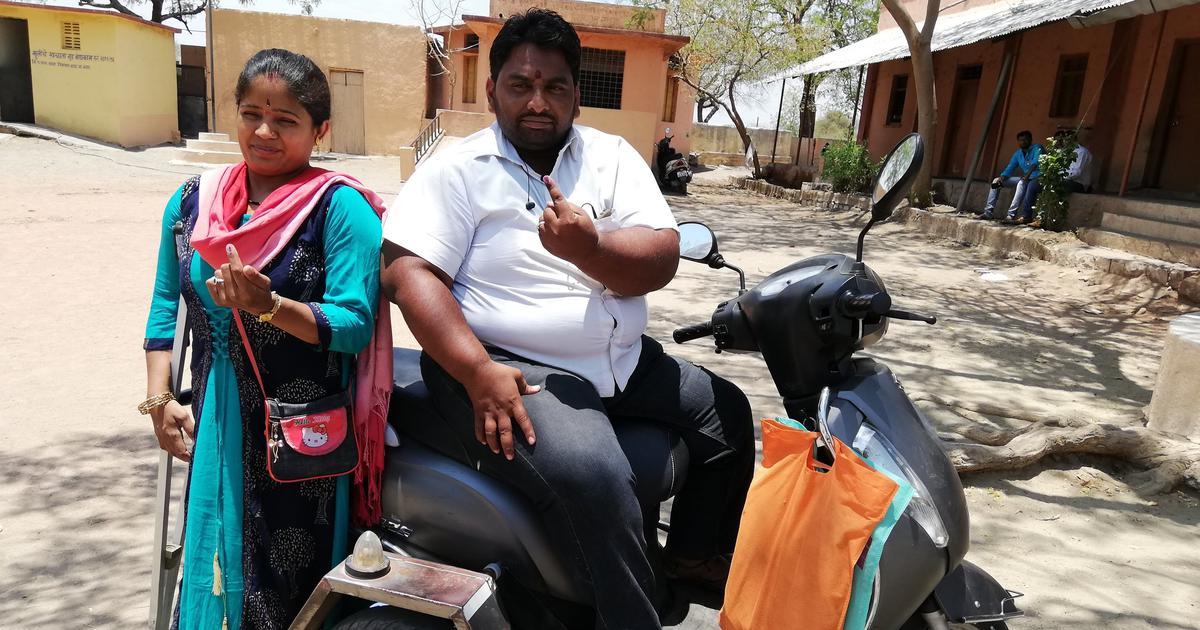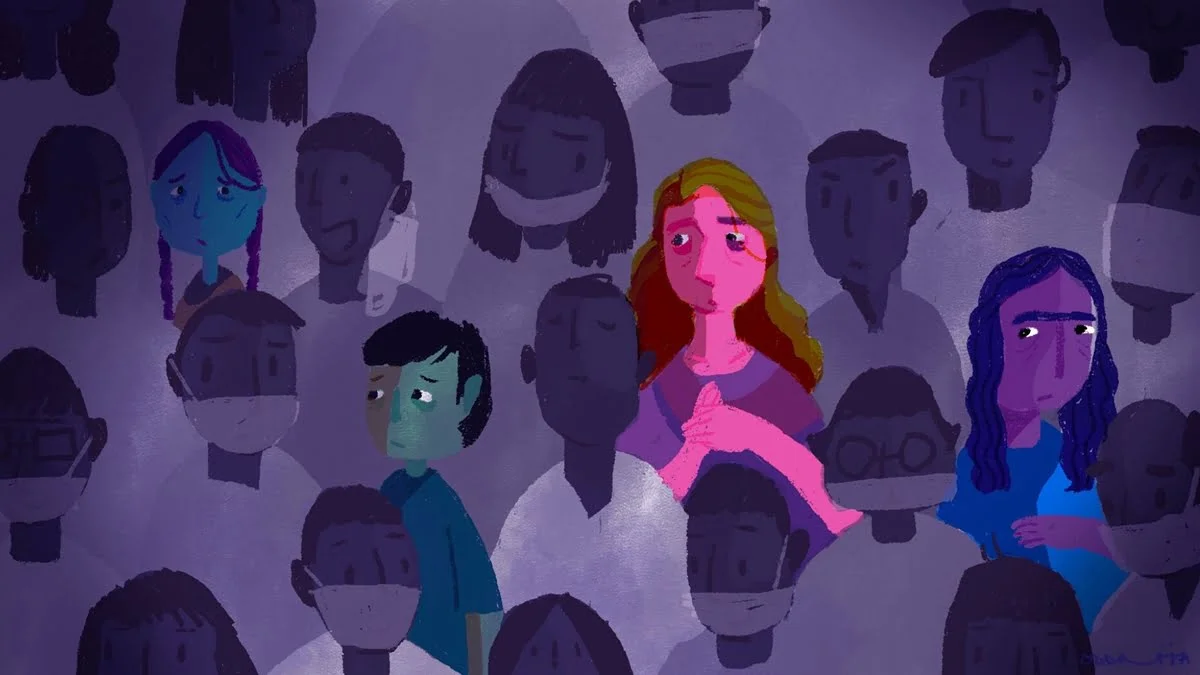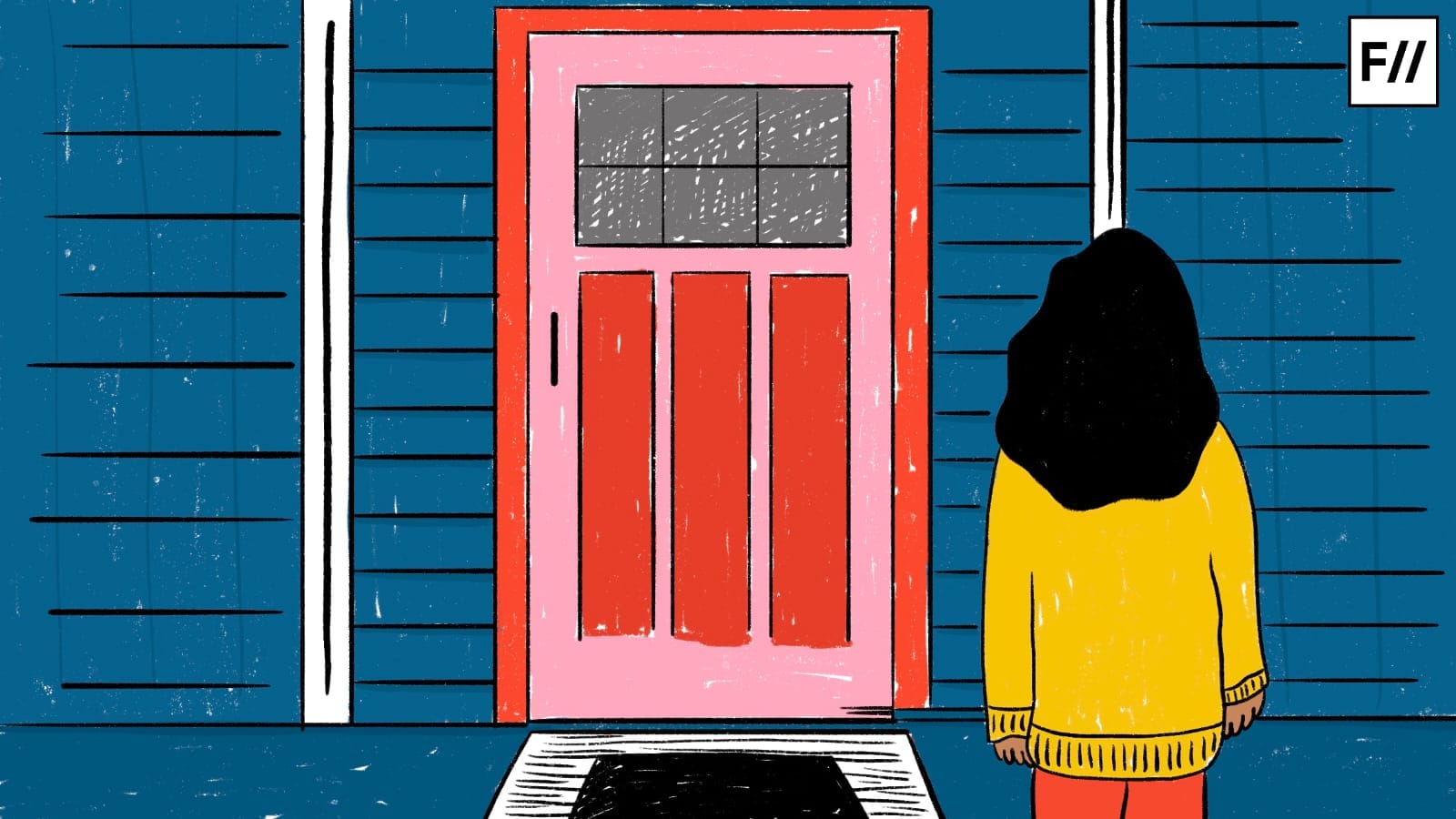India has just completed the second phase of its 18th General Elections. To make this ‘festival of our citizenry‘ more inclusive, apex bodies like the Election Commission of India (ECI) have evolved and implemented changes over the years. From establishing universal suffrage to lowering the voting age from 21 to 18, this robust procedure in the country initiates active political participation of the largest number of voters in the history of all democracies.
However, this electoral procedure is still under question when it comes to it being accessible and inclusive to all, especially for people with disabilities who are often excluded from this practice.
According to ECI, over 90 lakh Persons with Disabilities (PwD) have registered to vote in the elections this time. Despite ECI’s efforts, PwD voters continue to face problems due to the lack of accessibility of voting procedures.
These problems can be categorised based on the pre-polling, during and post-polling stages. Pre-polling challenges include a lack of information in accessible formats like audio, video or other visual formats that are suitable for different kinds of disabilities. During polling, challenges involve infrastructural, training and awareness problems within the mechanism that provides resources to vote. Post-polling stage challenges involve a lack of representation in governance- like the legislature itself which should make laws to prevent these problems in the first place.
In a recent report by the World Bank, nearly 5-8 per cent of the Indian population was estimated to be persons with disabilities. However, they continue to be under-represented in mainstream Indian politics.
What are the laws and provisions for PwD voters?
The very first step towards ensuring the prevention of social exclusion of PwD citizens began with the enactment of the Persons With Disabilities Act (1995). This Act recognised only seven kinds of disabilities. After the adoption of the Rights of Persons with Disabilities (RPwD) Act 2016, 21 kinds of disabilities are recognised now. The Act provides a constitutional guarantee to empower persons with disabilities through equality of opportunity, and accessibility, and to lead their lives with dignity by ensuring non-discrimination, effective participation, and inclusion in society.

Inclusion in the electoral process is ensured by the recognition of voters with any one of the 21 disabilities mentioned in the Act to be a PwD voter. The ECI has four categories under which PwD voters are enrolled in the electoral roll: Visual impairment, Speech & Hearing disability, Locomotor disability, and Others. This recognition is important for both before and during polling procedures.
As per Section 11 of the RPwD Act 2016, the Election Commission of India and State Election Commissions must ensure that all polling stations are accessible to PwD voters. It must also be ensured that the materials required for the electoral process are accessible and easily understandable.
As per ECI guidelines, polling stations must be on the ground floor with permanent ramps, handrails, and a proper access route. There must be a demarcated parking space and accessible toilets for PwD voters. The polling booth must be equipped with EVMs with braille features, and assistive aids like magnifiers, small stools, quality wheelchairs, adjustable tables, etc. to make the process smooth for the voters. Volunteers and staff at the polling booth must have undergone proper training and sensitisation to aid PwD voters. They should be given priority in casting votes by forming separate queues. Pick-up and drop-off facilities can also be availed by PwD voters.
This year for the first time, ECI announced that PwD voters and voters above 85 years of age could avail the facility to vote from their homes in the 2024 General elections.
Lack of implementation on the ground
Naveen Daniel (30), a disability justice activist and wheelchair user, voted in the first phase of the 2024 elections from the Sivaganga constituency, Tamil Nadu. This was his third time voting. However, he did not experience any improvement in terms of accessibility.
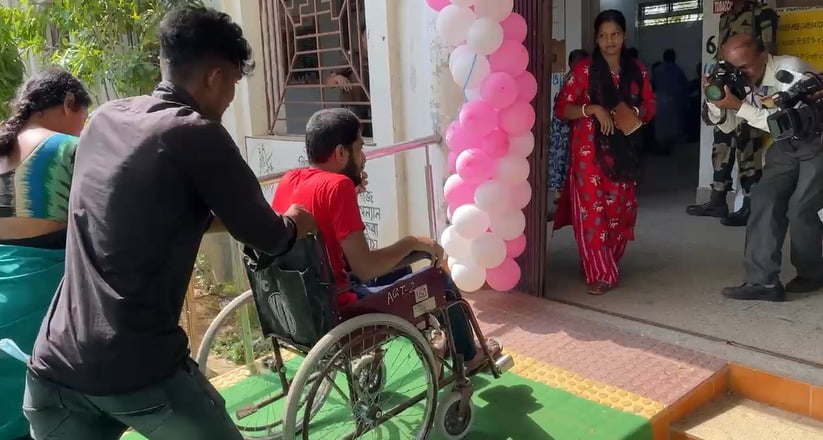
He says, ‘The ramp at the polling station was not maintained properly and I had to be lifted inside. The voting tables were not accessible for me, I was not able to see the EVM machine and VVPAT display.’ He also mentioned how non-adjustable voting tables affect voters with dwarfism as well.
Confidentiality of votes of PwD persons is often compromised as the escort or the person accompanying the voter presses the buttons on the EVM machine for them. Naveen says this is avoidable in most cases if basic accessibility features are available at the booth.
Another voter Vinayana Khurana, an Instagram influencer and MPhil student from Delhi, who uses a wheelchair, tells how the situation is much better than what it was a couple of years back. She says the voting procedure has become more accessible with advancements like online registrations. However, she feels there are regional disparities in the implementation of ECI guidelines with metropolitan urban polling booths having more accessible features than rural areas. She believes the installation of wheelchair ramps, braille ballots, and sign language interpreters along with adequately trained polling staff at every booth would be a great step for supporting all voters.
External factors impacting voting
Fathima Anshi (18) a student with visual impairment from Malappuram, Kerala was supposed to cast her first vote in the 2nd phase of elections. However, she missed the chance because of the intense heatwave that prevailed during the day. ‘I was at a place that was an hour away from the polling booth. It was difficult for me to travel in this heat and the polling station was overcrowded; I did not find it safe.’ In Kerala, seven deaths due to heatstroke were reported at polling stations.
As heatwaves and harsh weather conditions continue to grip the country, travelling has become a hazard, particularly for PwD. Like Fathima, other PwD voters who are either migrants or living away from their constituencies have not been able to avail the commuting services offered by ECI.
In addition to this, there is also a lack of accessible drinking water facilities and toilets at polling stations. Long queues and lack of protection from the heat wave are causing major distress among PwD and elderly voters.
Akshay Jain from the National Centre for Promotion of Employment for Disabled People (NCPEDP) a cross-disability non-profit organisation mentions if basic accessibility features were available at polling booths, many PwD voters would not have required this option to vote from home.
Many PwD voters consider the option to vote from home a good initiative. However, Naveen mentions that they are also concerned about the polling stations remaining inaccessible for PwD voters if the facility becomes common in use. ‘I would prefer to go to the polling booth to cast my vote. More EVM machines should be installed that have Braille or tactile features,’ says Fathima.
Many voters feel that ECI’s initiatives towards accessibility have several loopholes because they are temporary and not long-term solutions. Akshay Jain from the National Centre for Promotion of Employment for Disabled People (NCPEDP) a cross-disability non-profit organisation mentions if basic accessibility features were available at polling booths, many PwD voters would not have required this option to vote from home.
Demands of PwD voters and political participation
The National Centre for Promotion of Employment for Disabled People (NCPEDP) in collaboration with the National Disability Network (NDN) released the “Manifesto: For And By Citizens with Disabilities” which was made by consulting 15,000+ PwD voters and 600+ organisations working for people with disabilities from all over the country.
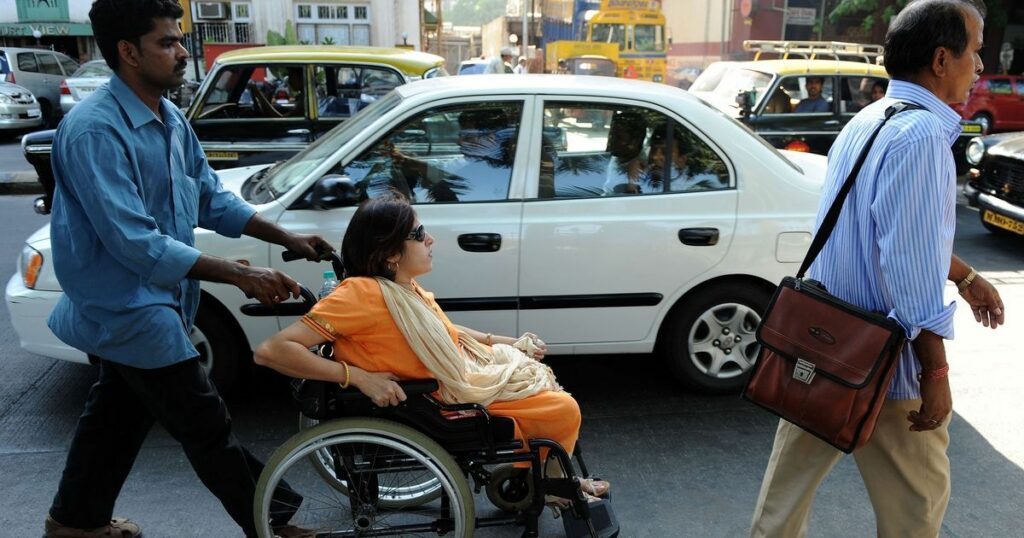
The manifesto has ten demands which include: amending Article 15 to prohibit discrimination on the grounds of “disability,” 5 per cent reservation in all governance levels, 5 per cent of the budget to be allocated for disability inclusion, providing health insurance, ensuring all backlog vacancies for PwD candidates are filled in all government offices among others. Several of their demands were taken up by national parties like Congress, BJP and CPI(M). Several other Disability rights activists and organisations have also been demanding political parties prioritise the rights and demands of people with disabilities in their manifestos.
Akshay Jain lawyer and Assistant Program Manager at NCPEDP says, ‘Apart from providing pensions and freebies, governments have not taken steps to achieve long-term solutions to address the problems faced by PwD. Ensuring inclusion in educational spaces, employment, public spaces and healthcare along with sensitisation at the grassroots level is necessary for achieving these solutions.’ This can only be achieved through the political participation of PwD, he says.
Fathima adds ‘The existing laws and schemes must be properly implemented by the government because a lot of PwD citizens have not been able to get benefits of the same.’ She also says that efforts must be taken to ensure barrier-free access to public spaces and resources.
It is not just about voting but also about choosing the right representative. Someone who addresses the concerns of the PwD Voters. Voting, though an important right is just one part of the political process. The fact that the legislature lacks any representation of PwD citizens already explains how parties whether national, state or regional do not see the community as an important vote bank. Political representation of the community at all governance levels is abysmal.
‘There are many people I know who want to be active in politics. However, parties are not showing the will to let us contest in elections. I believe reservation is necessary to ensure our representation,’ says Naveen. Due to the lack of accessibility in the offline campaigning events of political parties, he mainly took part in online campaigns. There has also been a demand for sign language and Braille translation of political leaders’ speeches and parties’ manifestos.
The lack of comprehensive data on the community has become a major challenge in the effective implementation of these policies and measures on the ground. The media’s approach towards either sympathising with disability or making it a subject of mockery has to change into one of awareness, sensitisation and proper representation. Political representation through inclusion and accessibility could be the first step towards all the other forms of inclusion in terms of economic, educational, social, and environmental, among others.
About the author(s)
As an independent journalist, writer, and aspiring documentary filmmaker, Stuti covers about social and political issues. Interested in development journalism she also highlights issues on human rights, gender, education, unemployment, law and others. She aims to start her own news media initiative in the future to transform the way development is covered and discussed in the news.
